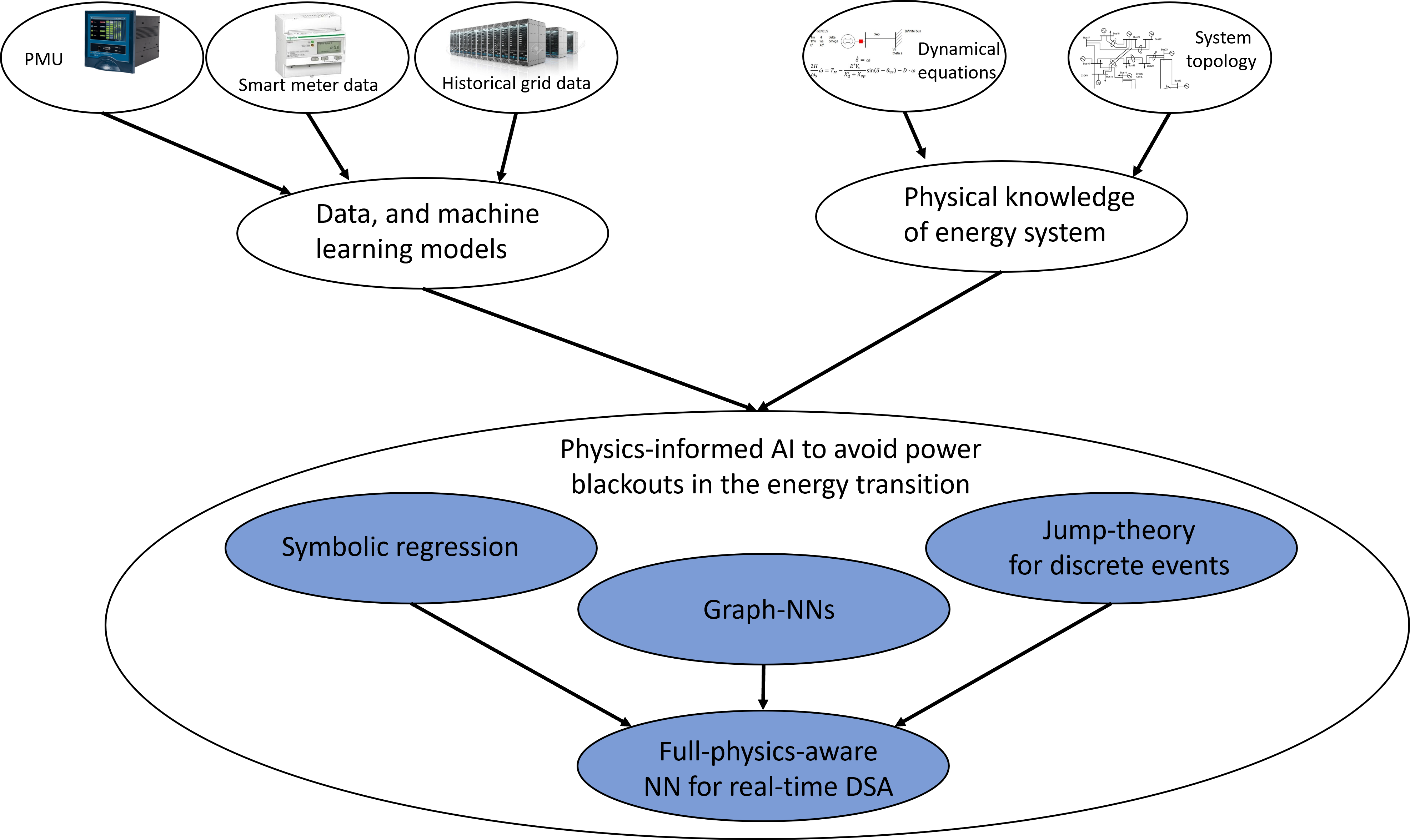NWO Veni: Physics-informed AI to avoid power blackouts in the energy transition
Introducing renewable energy to the power system changes the system such that cascading discrete failure events is the major cause for blackouts of energy. System operators currently provide secure operations by lowering the capacity of the infrastructure with large safety margins that are inefficient and limit the renewable energy introduction. An alternative is the real-time dynamic security assessment (DSA) to possible failure events which are unfortunately currently restricted by computational limits to only work offline and to identify only the most important failure events, which means the simulations become inaccurate and unsuitable to assess the dynamic security of the real-time operation. Recently, the research field of studying generic dynamical systems with Machine Learning(ML) became very active including myself. Previous research developed a novel probabilistic ML approach for real-time DSA, but learned that so far there is no solution to consider discrete events, to generalise to data that is meaningfully different to the training data and to the large amounts of data required for training. This research project aims to go beyond the state-of-the-art and use Neural Networks(NNs) for predicting discrete events in dynamical systems and to inform them with the physical knowledge to minimise generalisation error, reducing data needs. This project will inform three parts of AI training: (a) the model-structure with Neural Networks that regularise with physical equations, and the graph structure of the interconnected power network, (b) the NNs-output with symbolic regression adding prior knowledge, and (c) the training effectively discrete stochastic events such as faults.
 This research project was awarded under grant number #19161. The project duration is from 2022-2025. The partners in this project are TNEI, TenneT and Stedin. Find more information about the NWO Veni programme.
This research project was awarded under grant number #19161. The project duration is from 2022-2025. The partners in this project are TNEI, TenneT and Stedin. Find more information about the NWO Veni programme.
